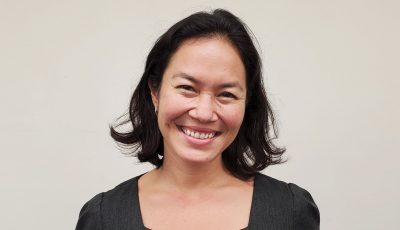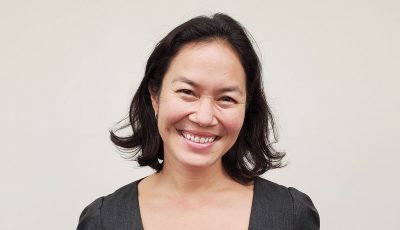Students Last: How we are failing our public schools
Students return to school this week, and our Public School System is in a desperate state of emergency. The Board of Education officially declared the emergency in June, but the crisis happened months before that, when the central government began drastically shrinking, and delaying, allotments to the school system. PSS’ financial condition has only worsened since then.
There is literally nothing in the bank. Every two weeks, the central government transfers to PSS barely enough to make payroll, with salary cuts in effect, at $700,000. There is no money to pay health and life insurance employer contributions for staff (PSS owes $1.2 million); no money to compensate over a hundred vendors for services already rendered (PSS owes more than $3 million); no money to pay utilities (PSS owes more than $700,000).
There is no money for operations. The entire school system has just a two-week supply of fuel for buses. These buses are badly in need of repair and maintenance, and there is no money for that. The buses will be further strained running overtime this year because seven schools on Saipan are on double session. Kagman’s elementary school and middle school are two such schools that must double up, because the elementary school is plagued with major electrical problems and there is no money to fix them. Kagman High School’s electrical system also needs critical repair work. Again, no money.
All across the Commonwealth, principals and teachers are scrambling to stretch every resource, every penny of whatever they have left from educational tax credits to pay for school supplies, toilet paper, fuel for vans and equipment, cleaning services, security. But some schools have no operational funds at all—no ETC, nothing. One educator told me that in his 20 years at PSS, he has never seen a financial crisis like this before.
‘This is not justice’
Nearly a year after Super Typhoon Yutu, many of Saipan’s schools remain in a shameful state of disrepair. Hopwood Middle School’s students perhaps have it worst of all. They return to a temporary campus of tents that are already showing signs of deterioration. The floors are warped, door locks are broken, air-conditioning units need repairs. There is no money for repairs, and no replacement parts on island. Teachers say their classrooms are constantly dusty because the air-conditioning systems suck in dirt from the outside. Rats get into the tents and leave feces behind.
There are no trees or awnings outside, so students huddle up in slivers of shade against the tents and the restrooms to hide from the brutal sun. There are no covered walkways, so when it rains, students get soaked transitioning from one class to the next. There is no field for sports, no cafeteria, no library, no playground, no outdoor seating areas, no amenities whatsoever to support and enhance student learning. The school van is broken, has no windows, and no air-conditioning. There is no money to fix it.
One Hopwood educator described conditions at the school as inhumane. “This is not a place for children,” she said. “This is not justice.”
The students, teachers, administrators, staff, and families of Hopwood overwhelmingly want to return to their old campus. Hopwood lost 32 classrooms to Super Typhoon Yutu, but some of the damaged structures only need new roofs. Eighteen classrooms are still intact. The frustrating reality is that there is no clear plan to move the students back to their campus anytime in the near future. No progress has been made on repairs at Hopwood in part because PSS has no money to spend to do the work to get reimbursed by the Federal Emergency Management Agency and to cover the local cost share.
This lack of funding for upfront costs and for the local match is the case for our typhoon-damaged public schools in every single precinct on Saipan.
Pay PSS what is owed
When Gov. Ralph DLG Torres declared budgetary shortfalls in April and May, he imposed cuts that should have been proportionate across the government, as required by the Planning and Budgeting Act. For PSS, a 15% budget cut should have meant a drop from $42 million to $35 million. But 11 months into the fiscal year, PSS has received just $23 million. The school system will be lucky to get a total of $26 million by the time the fiscal year closes, on Sept. 30. That amounts to a 38% cut that is neither proportionate, nor legal, nor constitutional. In addition to failing to comply with the Planning and Budgeting Act, $26 million falls far short of the constitutional mandate to deliver at least 25% of general fund resources to public schools.
It gets worse. If PSS closes out the fiscal year in the red (which it will if the central government does not pay the $11.5 million it owes), the school system will likely be placed on high risk status by federal grantors as a result of failing to meet federal grant match requirements and other conditions. This will mean new, more onerous compliance requirements and a third-party contractor to oversee PSS finances, as has happened with the Guam Department of Education, which has been on high risk status since 2003. High risk status for PSS will most certainly mean even greater delays in disaster recovery for our schools.
What can the Legislature do? Nearly two months ago, the Saipan and Northern Islands Legislative Delegation appropriated $250,000 to PSS from poker license fees. But the administration has yet to deliver those funds. Now the SNILD is contemplating appropriating at least $3 million from casino license fees to PSS to help address some of the school system’s most urgent obligations.
But PSS’ current needs are much greater than $3 million. SNILD chair Rep.John Paul Sablan and I have agreed to allocate all of Precinct 2’s share of the casino license fees (around $800,000) to our precinct’s public schools to help them cover upfront costs and the local cost share required to rebuild their broken campuses. Our hope is that our SNILD colleagues will follow suit, and allocate at least a portion of their precinct’s funds to their respective schools as well. PSS has already provided the local cost share estimates per school for the members to consider.
But the Torres administration must also do its part. Funds that have been appropriated to PSS must actually be remitted to PSS. Moreover, Saipan’s sole casino licensee owes at least $17 million in Community Benefit Fund distributions and will owe another $20 million this October: Gov. Torres must press on Imperial Pacific International to pay up and direct those funds to PSS. We now know that tax rebates and refunds, as well as appropriations from other revenue sources, have been diverted since the typhoon—ostensibly for disaster recovery. Because the state of disaster emergency continues to be extended, presumably such diversions are also continuing. But where are these funds going exactly? And why are they not going to our public schools, which remain in a state of disaster 10 months after Yutu?
What is also worrisome is that the PSS budget proposed by the governor for fiscal year 2020 falls far below what our public schools need just to maintain payroll, even with current PSS salary cuts in effect. If government-wide austerity measures continue past Oct. 1, they will further exacerbate our school system’s crisis of underfunding. The PSS board is already contemplating four-day school weeks and additional salary cuts. Why the board has not yet filed a lawsuit to pursue what is constitutionally, legally, and morally owed to PSS is anyone’s guess.
The sense of urgency is palpable at the ground level, at our schools that have reached rock bottom as funds have dried up. But that sense of urgency must also reach Capital Hill. At what point will our schools be forced to shut down? Will we pay attention then?
Stand with our students
It will take our public schools years to recover—not only from the impacts of Super Typhoon Yutu, but also from the impacts of austerity. Now is the time for everyone who cares about our students and our public schools to raise their voices and urge the governor, the Legislature, and the Board of Education to get our school system back on track. With 1,050 PSS employees, 10,000 PSS students and their families, and so many more community allies, those voices are powerful when they are united.
The bottom line is this: the illegal, unjust, and immoral shortchanging of our public schools must stop. PSS needs money and support—and to get there, we need political will, a greater sense of urgency, and a realignment of priorities at the highest levels of our government to truly put our students first.
Tina Sablan (Special to the Saipan Tribune)
Tina Sablan is a Precinct 2 representative in the CNMI House of Representatives in the 21st Legislature and is a member of the House Ways and Means Committee.



























